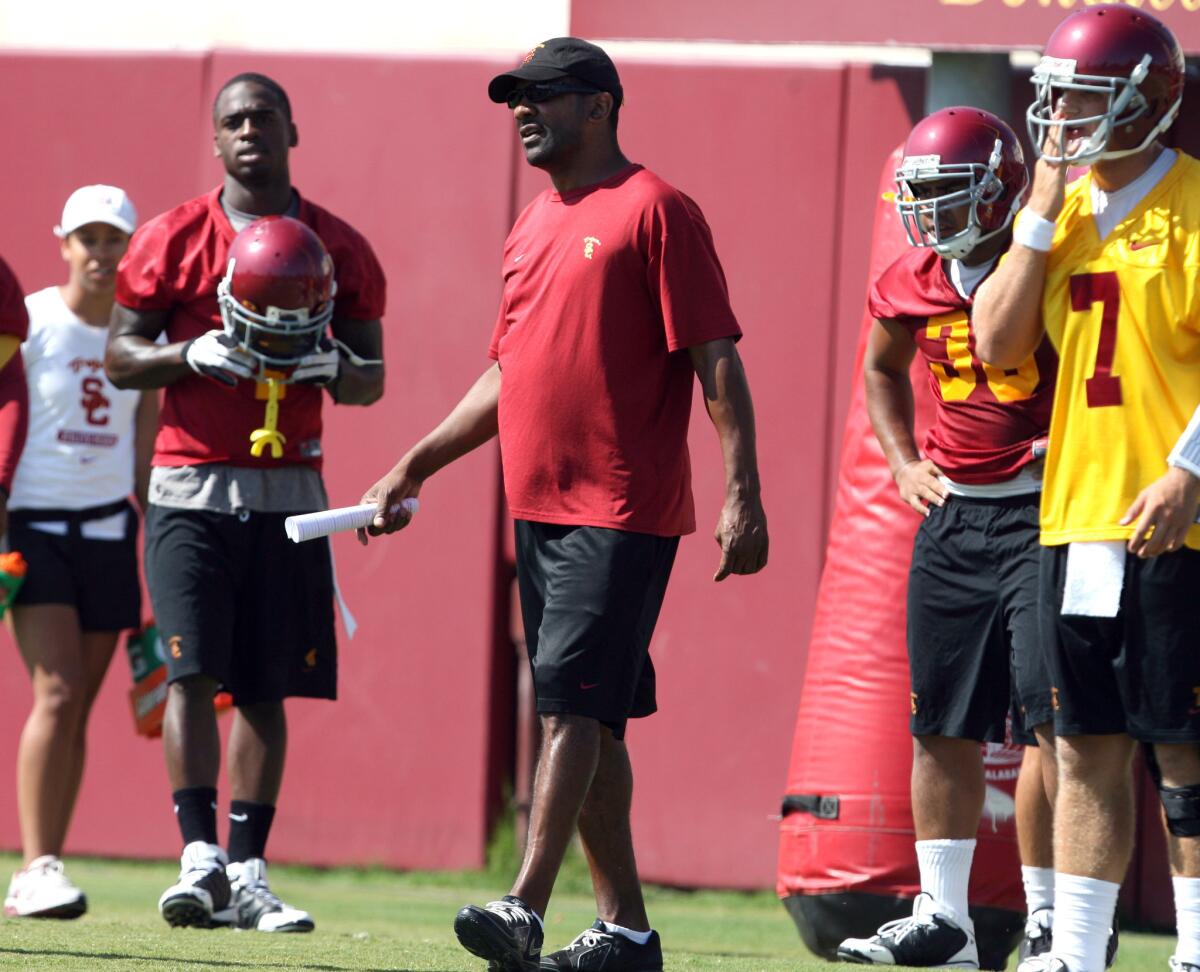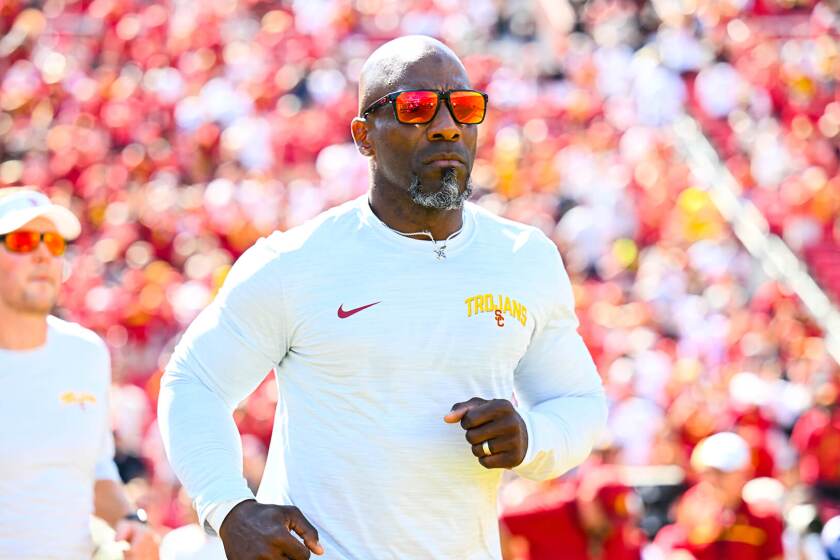Full record in defamation suit by Todd McNair against NCAA is made public

Todd McNair coaches USC tailbacks in 2009.
- Share via
The full record in Todd McNair’s defamation lawsuit against the NCAA became public Wednesday as attorneys for the former USC running backs coach filed more than 200 pages of previously sealed documents in California’s 2nd District Court of Appeal.
Among the collection of deposition excerpts, phone records and emails between members of the NCAA’s Committee on Infractions is the full version of an inflammatory note that described McNair as a “morally bankrupt criminal.”
The NCAA spent years fighting to keep the documents private. A three-judge panel in the appellate court rejected the effort in February. By March, the NCAA publicly refiled about 500 of more than 700 pages of documents that had been sealed. McNair’s attorneys submitted the remainder of the documents Wednesday in a 256-page attachment to a brief.
The cache provides a more complete picture of the deliberative process that saddled USC with crippling sanctions in the aftermath of the Reggie Bush extra benefits scandal.
Among the documents is a two-paragraph email from infractions committee liaison Shep Cooper to Rodney Uphoff, a University of Missouri law professor and nonvoting member of the 10-person committee.
“As [infractions committee member] Roscoe [Howard] said at some point during the Sunday morning deliberations, individuals like McNair shouldn’t be coaching at ANY level, and to think that he is at one of the premier college athletes programs in the country is outrageous,” Cooper wrote Feb. 22, 2010. “He’s a lying, morally bankrupt criminal, in my view, and a hypocrite of the highest order.”
A week later, Howard authored a four-page email to the committee in which the former U.S. attorney excoriated USC and repeatedly tried to make the case that McNair lied.
“… I don’t think this committee should be chained to a staff that has seemed to have fallen short with this investigation or an institution that has no intention of having us find out what actually happened here,” wrote Howard, another nonvoting committee member. “I was insulted by the arguments made by institution and embarrassed by the reaction of the staff.”
Earlier that day, Uphoff told Howard in an email that he hadn’t been able to sleep for three nights because “I fear that the committee is going to be too lenient on USC on the football violations.”
Others on the committee had expressed concern that NCAA investigators “botched” a key interview with McNair and that the coach “did not have a good opportunity” to explain a purported two-minute phone call with sports marketer Lloyd Lake in January 2006 that became a key part of the NCAA’s case.
“I know not everyone agrees with me,” Howard wrote, “… but USC’s approach to this case I have found very troubling, and downright insulting. I found their general counsel close to obstructionist and I am thoroughly convinced that what they want from this hearing has nothing to do with helping us learn what actually happened.”
Los Angeles Superior Court Judge Frederick Shaller ruled in November 2012 that the Cooper and Howard emails “tend to show ill will or hatred” by the NCAA.
The infractions committee eventually ruled that McNair engaged in unethical conduct and saddled him with a “show-cause” order that leaves a coach essentially unemployable. USC was also sanctioned for “lack of institutional control.”
McNair’s attorneys maintained in Wednesday’s brief, as they have before, that the NCAA fabricated evidence in the case.
The NCAA, which didn’t respond to a request for comment, wants the appellate court to strike McNair’s complaint and dismiss the case. Its reply to McNair’s brief is due next month.
Follow Nathan Fenno on Twitter @nathanfenno
More to Read
Go beyond the scoreboard
Get the latest on L.A.'s teams in the daily Sports Report newsletter.
You may occasionally receive promotional content from the Los Angeles Times.







